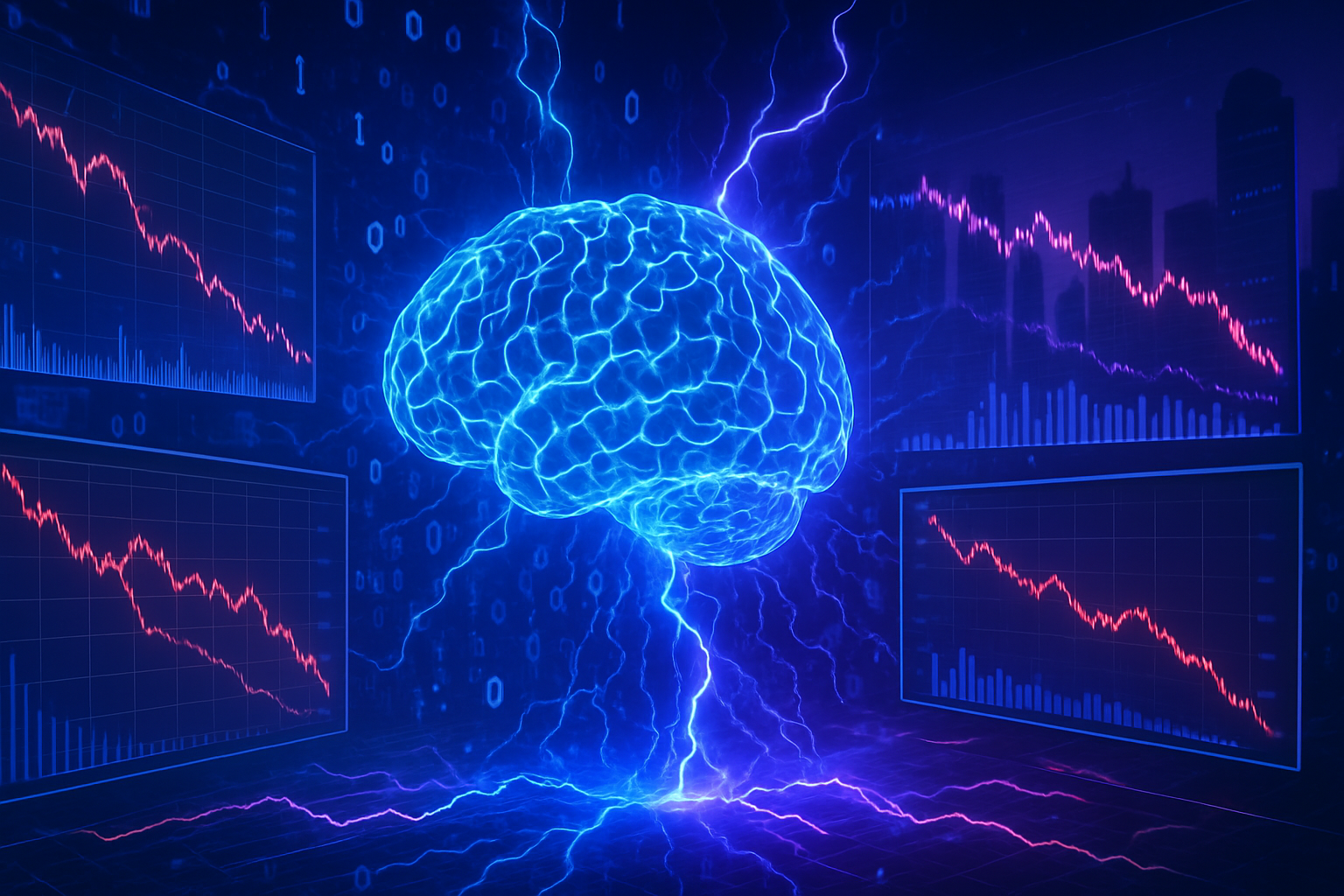AI fascinates and anxieties at the same time. The current market panorama demonstrates a palpable uncertainty, where the tumult of expectations regarding artificial intelligence could trigger a chain reaction within the stock markets. Large companies, once revered for their stability, stand at a crossroads, their future wavering under the weight of unfulfilled promises. The potential deception behind certain stock valuations, according to prominent experts, makes seasoned investors tremble. The coming weeks will reveal whether the enthusiasm surrounding AI will transform into a dizzying plummet of stocks, plunging the market into chaos or whether, conversely, this storm will prove to be an opportunity for renewal.
A growing concern for the stock market
Fears are multiplying regarding a potential collapse of the stock market, primarily due to the rollercoaster of AI. The recent declines in stocks within the American tech sector show troubling signs. As enthusiasm around the promises of artificial intelligence seems to fade, the risk of a market downturn becomes increasingly palpable.
Signals of an imminent crisis
For months, companies heavily investing in AI have faced excessive evaluation. A study from the Massachusetts Institute of Technology revealed that 95% of companies investing in generative AI have yet to see significant financial returns. In light of this information, voices are rising to warn that valuations deemed “senseless” could turn into genuine ticking time bombs.
Investor reactions
Analysts like Ipek Ozkardeskaya point out that comments from Sam Altman, the CEO of OpenAI, could prompt investors to reconsider certain positions. The recent dives in stocks of companies like Palantir, whose price has dropped nearly 10%, reinforce these concerns. This observation comes as other companies related to AI, such as Nvidia and Oracle, also experience significant declines in their stock values.
The prospect of institutional support
Jerome Powell, Chairman of the Federal Reserve, has attempted to ease investor fears by stating that the Fed is considering interest rate cuts. Such a measure could lighten the burden on indebted companies, particularly those in the tech sector. The high exposure of American pension funds to tech stocks makes the potential collapse of a sector particularly concerning.
The impact of artificial intelligence on employment
With the rise of AI, profound changes are taking place in the workplace. Office workers are increasingly integrating these technologies into their daily tasks. AI tools, like Microsoft’s Copilot, are spreading and beginning to automate tasks previously reserved for humans. More companies are adopting these technologies, hoping to lighten their workload.
Underlying risks
This rapid evolution presents dangers. While some companies may benefit from these innovations, others may find themselves left behind. Fragile structures, for instance, would likely succumb in a context of more mature and competitive sectors, where major players like Amazon and Microsoft dominate.
Political and economic uncertainties
The unstable economic climate exacerbates concerns. With political figures like Donald Trump supporting new technologies, uncertainty grows. Trump has mentioned the possibility of selling advanced technologies to countries like China, highlighting a geopolitical risk that could further disrupt markets. Governments struggle to keep pace with technological advancements, leaving investors exposed to unpredictable fluctuations.
Conclusion: AI, an uncertain future for investors
Opinions diverge on the future of investments related to AI. On one hand, many companies continue to allocate resources to these technologies, despite recent turmoil. On the other hand, past crises, such as the burst of the internet bubble, remind us of the vulnerabilities in this sector. Faced with this uncertainty, investors must navigate cautiously in a rapidly changing environment.
Frequently asked questions
What are the potential reasons for an AI explosion and its impact on the stock market?
There are concerns about an overvaluation of tech companies investing in AI, especially when profits do not seem to correspond to valuations, which could lead to a market collapse if it worsens.
How might the Federal Reserve influence the stock market during uncertainty around AI?
The Chair of the Federal Reserve, Jerome Powell, has indicated increased attention on stock markets and may be prompted to adjust interest rates to support indebted companies and limit the impact of a potential crisis.
What is the current situation of companies investing in AI in terms of profitability?
A report from the Massachusetts Institute of Technology revealed that 95% of companies investing in generative AI have not yet seen financial returns, raising concerns about their long-term viability.
To what extent is the perception of the stock market influenced by media and news about AI?
Enthusiastic headlines about advancements in AI could create a speculative bubble, and when they fade, this could lead to a sharp decline in stock values of the affected companies.
How are traditional companies like Amazon and Microsoft positioning themselves in the face of the rise of AI?
These companies are heavily investing in AI, integrating AI tools into their daily operations, which could make them less vulnerable to market fluctuations due to diversifying their revenue streams.
Which tech companies are currently the most vulnerable to a collapse due to AI?
Companies like Palantir, with a very high price-to-earnings ratio, could be particularly vulnerable if there were a sharp reversal of market expectations regarding their financial performance.
What role does political uncertainty, particularly related to Donald Trump, play in the impact of AI on the stock market?
Trump’s policies and statements can affect overall investor confidence in the economy and, by extension, influence the perception of the viability and legitimacy of AI companies.
Is it prudent for investors to continue supporting AI-focused companies right now?
While some companies may face turbulence, investing in established leaders with solid plans may be less risky in the long run, despite current volatility.






